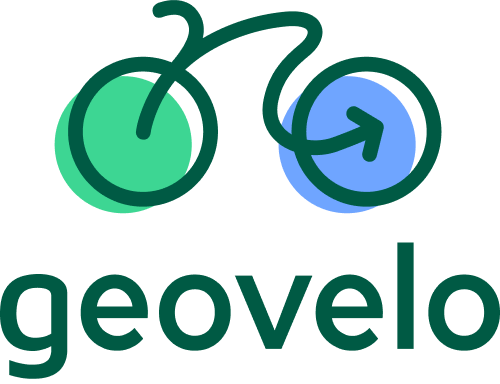

La Compagnie des Mobilités

Centre-Val de Loire, France
May 2025
Software publishing and SaaS platforms
Service with Minor Environmental Footprint
Belgium,
Brazil,
Czech Republic,
Denmark,
Finland,
France,
French Guiana,
Germany,
Greece,
Hungary,
Iceland,
Ireland,
Italy,
Luxembourg,
Monaco,
Netherlands The,
Norway,
Poland,
Portugal,
Slovakia,
Slovenia,
Switzerland,
Uganda,
United Kingdom,
United States
Geovelo accélère la transition écologique grâce à la mobilité douce depuis plus de 10 ans, en développant 3 produits phares : une application qui propose des trajets sécurisés aux cyclistes. Gratuite et sans pub ! un SaaS qui aide les collectivités locales à mieux comprendre les déplacements à vélo une API pour intégrer le calculateur vélo à d’autres sites web ou applications Avec plus d’1 million de téléchargements de l’app et une levée de fonds début 2022, Geovelo entend réussir son développement à l’international et fédérer les cyclistes du monde au sein d’une communauté engagée. Geovelo is a young company of soft mobility believers, created in 2010 and based between Paris and Tours, which wishes to develop and secure the practice of cycling today in France and tomorrow abroad. Geovelo included three products : a collaborative app, free and without ads, which guides cyclists before, during and after their bike journey, thanks to a calculator which offers routes from the most secure to the most direct, taking into account different criteria (user profile, type of bike, elevation,...), a tool, called Cycling Insights, that supports cities and territories in their decision-making and in the deployment of their bike policy. Cities and territories can now monitor and develop the
Overall B Impact Score
Governance 16.6
Governance evaluates a company's overall mission, engagement around its social/environmental impact, ethics, and transparency. This section also evaluates the ability of a company to protect their mission and formally consider stakeholders in decision making through their corporate structure (e.g. benefit corporation) or corporate governing documents.
What is this? A company with an Impact Business Model is intentionally designed to create a specific positive outcome for one of its stakeholders - such as workers, community, environment, or customers.
Workers 31.1
Workers evaluates a company’s contributions to its employees’ financial security, health & safety, wellness, career development, and engagement & satisfaction. In addition, this section recognizes business models designed to benefit workers, such as companies that are at least 40% owned by non-executive employees and those that have workforce development programs to support individuals with barriers to employment.
Community 11.2
Community evaluates a company’s engagement with and impact on the communities in which it operates, hires from, and sources from. Topics include diversity, equity & inclusion, economic impact, civic engagement, charitable giving, and supply chain management. In addition, this section recognizes business models that are designed to address specific community-oriented problems, such as poverty alleviation through fair trade sourcing or distribution via microenterprises, producer cooperative models, locally focused economic development, and formal charitable giving commitments.
Environment 6.0
Environment evaluates a company’s overall environmental management practices as well as its impact on the air, climate, water, land, and biodiversity. This includes the direct impact of a company’s operations and, when applicable its supply chain and distribution channels. This section also recognizes companies with environmentally innovative production processes and those that sell products or services that have a positive environmental impact. Some examples might include products and services that create renewable energy, reduce consumption or waste, conserve land or wildlife, provide less toxic alternatives to the market, or educate people about environmental problems.
Customers 24.2
Customers evaluates a company’s stewardship of its customers through the quality of its products and services, ethical marketing, data privacy and security, and feedback channels. In addition, this section recognizes products or services that are designed to address a particular social problem for or through its customers, such as health or educational products, arts & media products, serving underserved customers/clients, and services that improve the social impact of other businesses or organizations.
What is this? A company with an Impact Business Model is intentionally designed to create a specific positive outcome for one of its stakeholders - such as workers, community, environment, or customers.